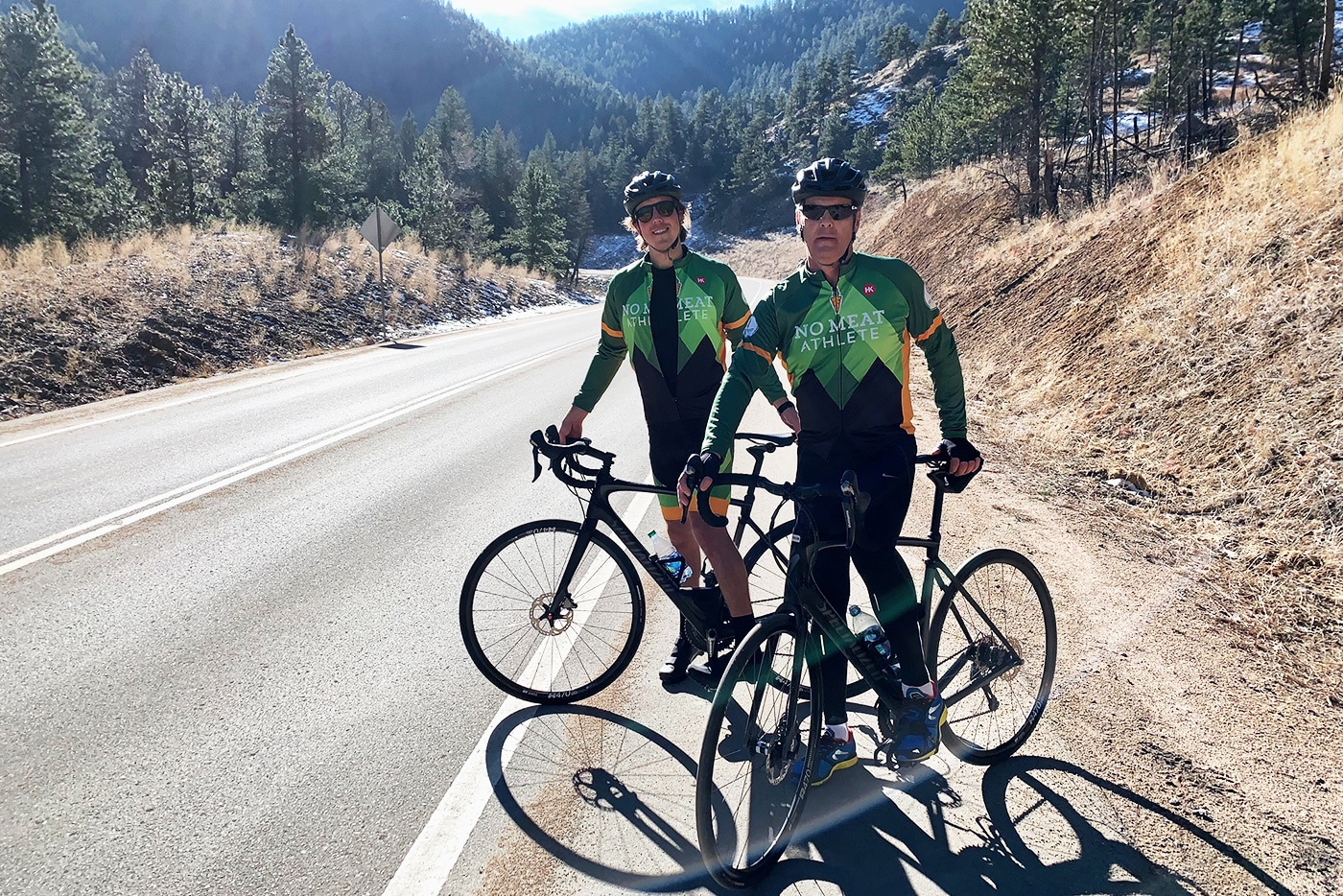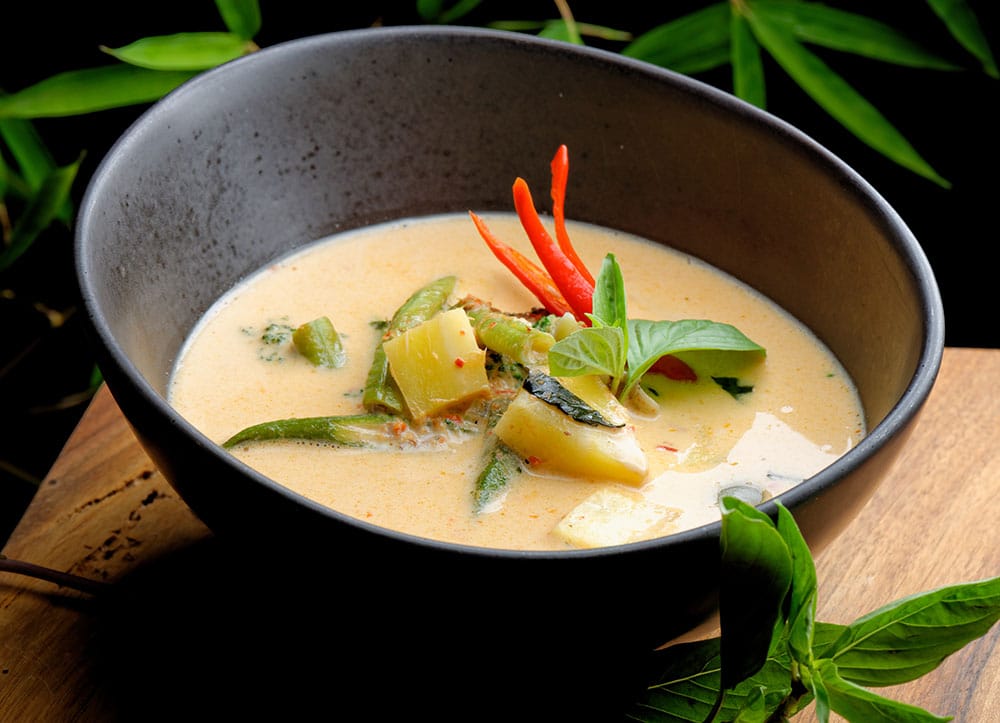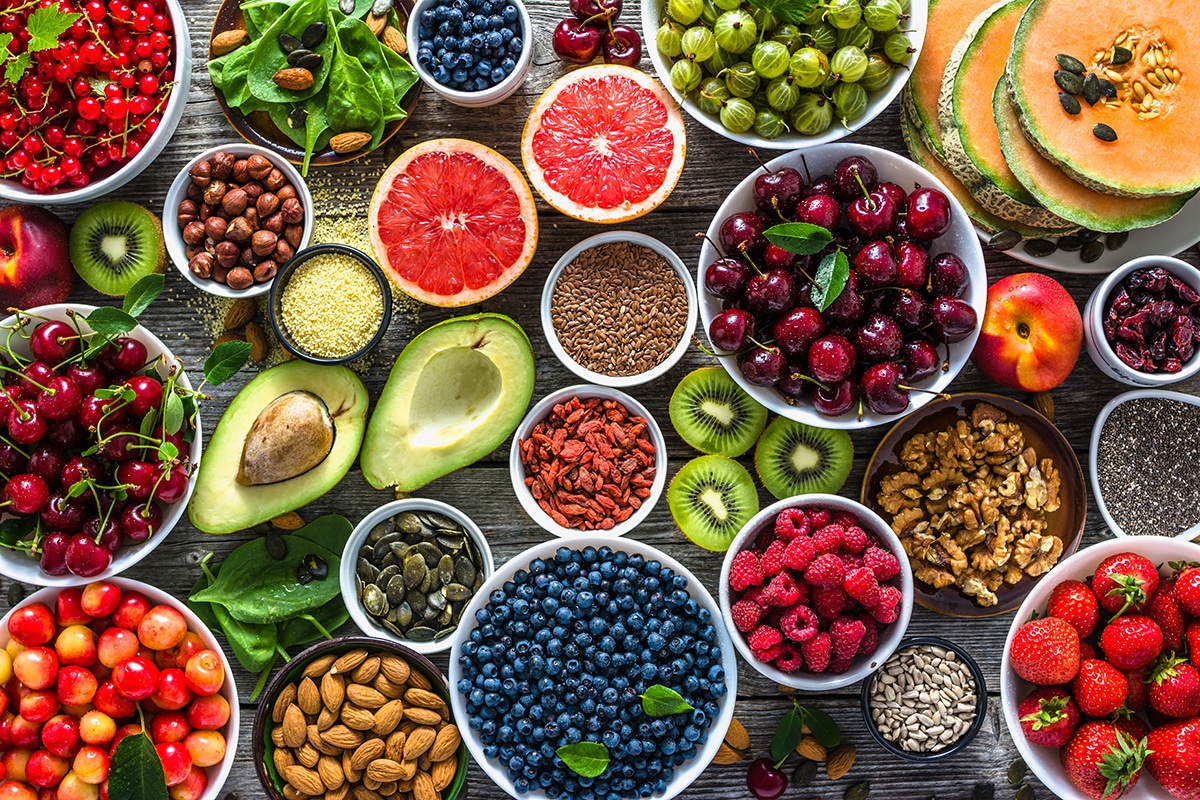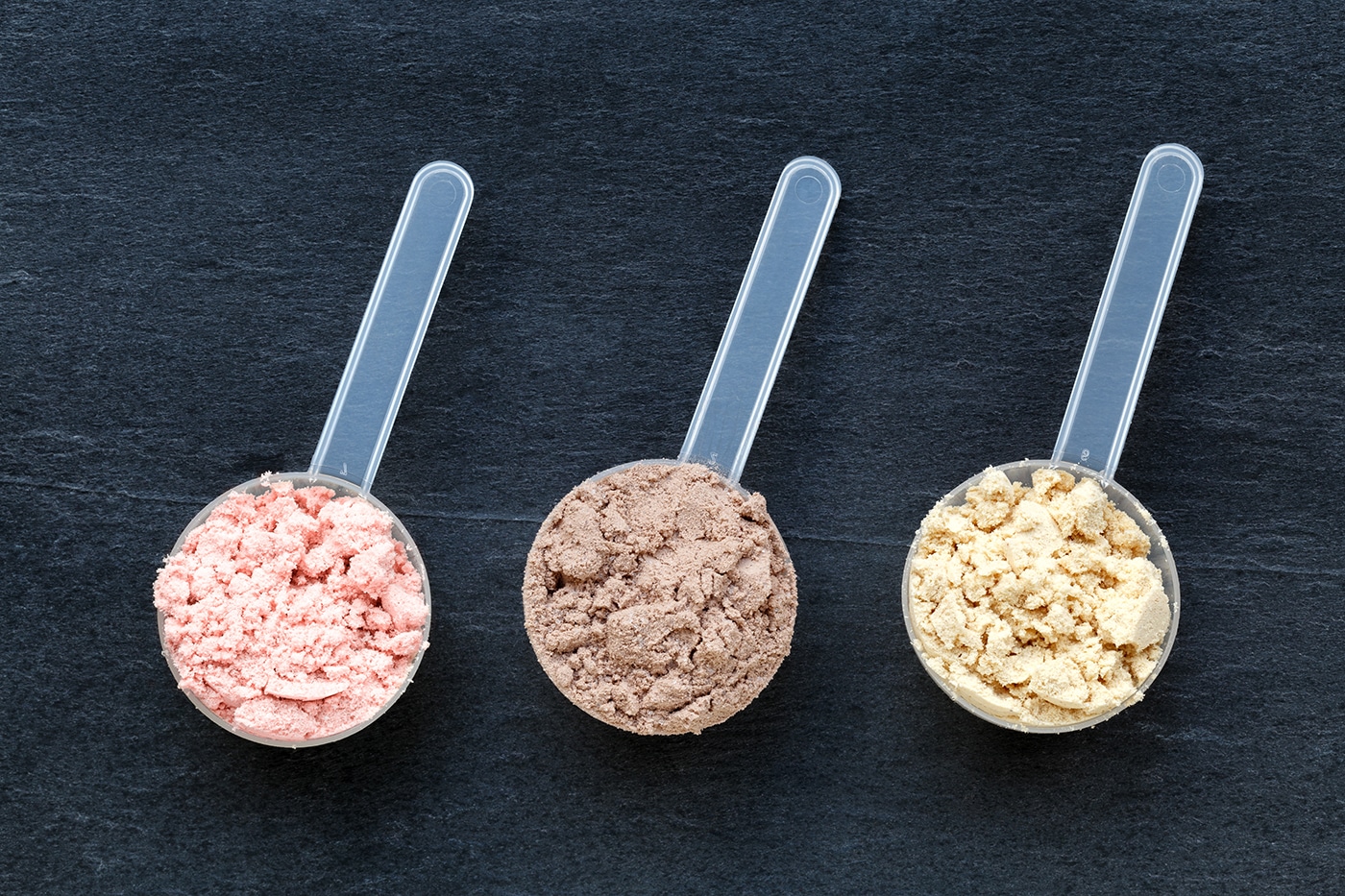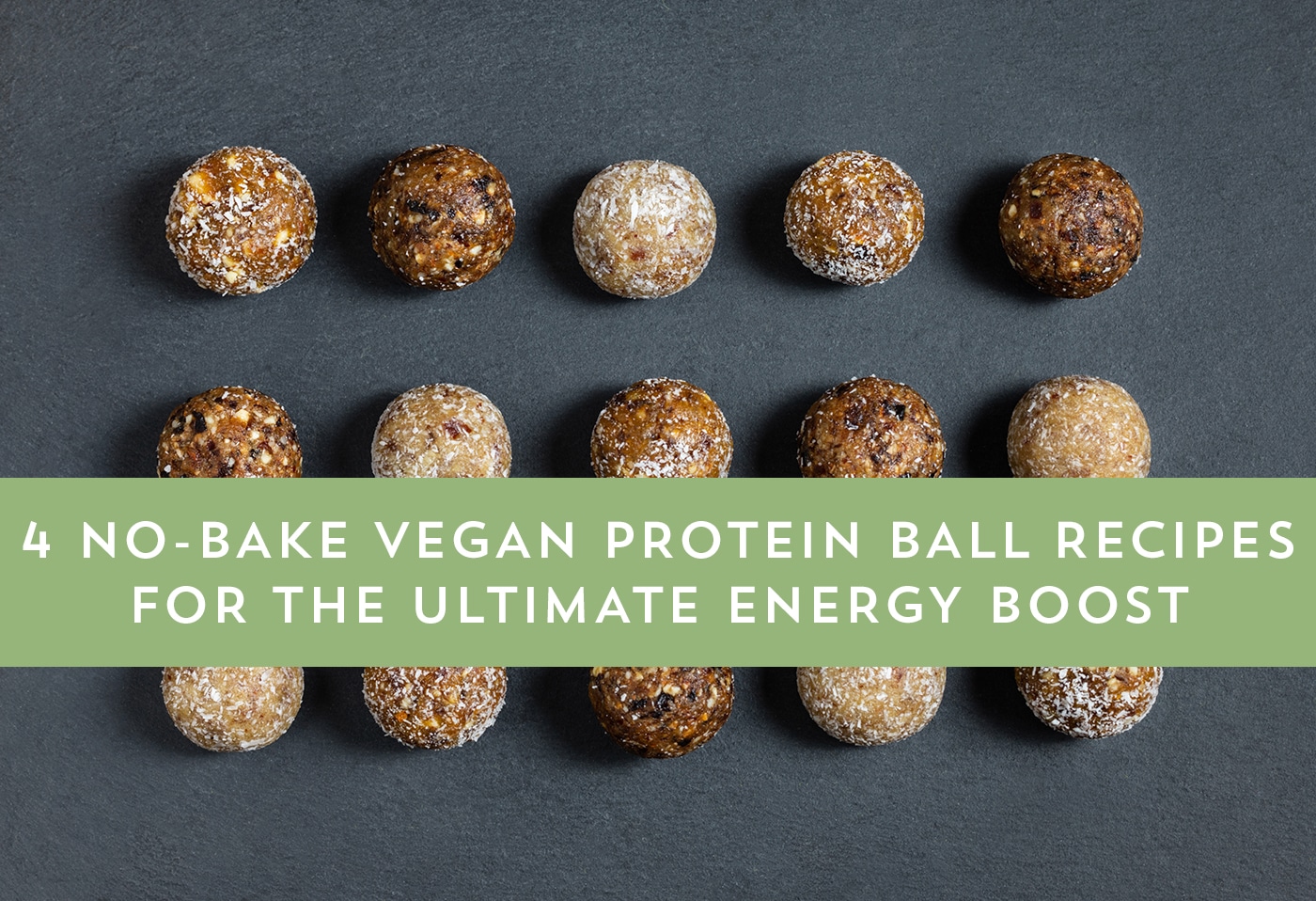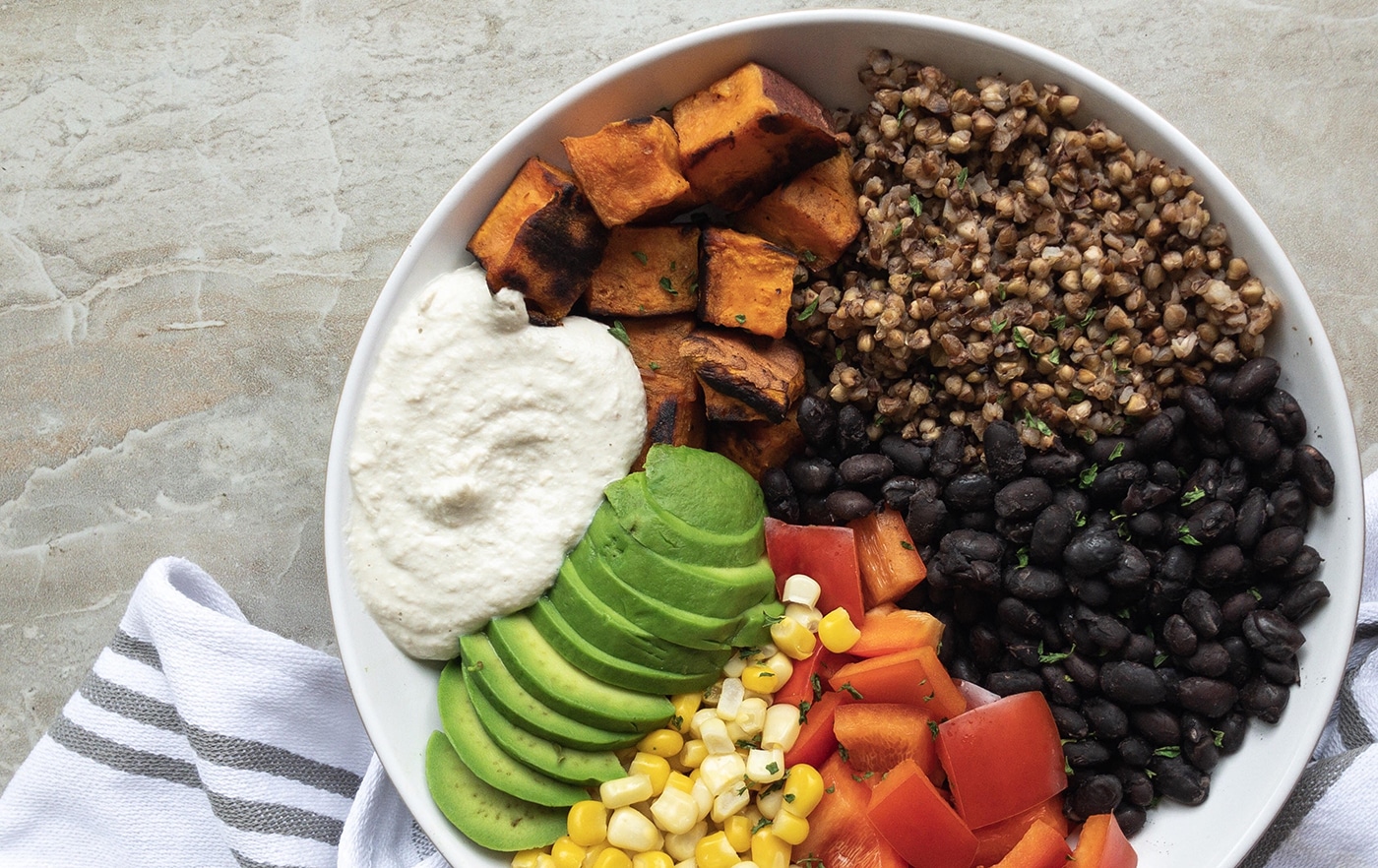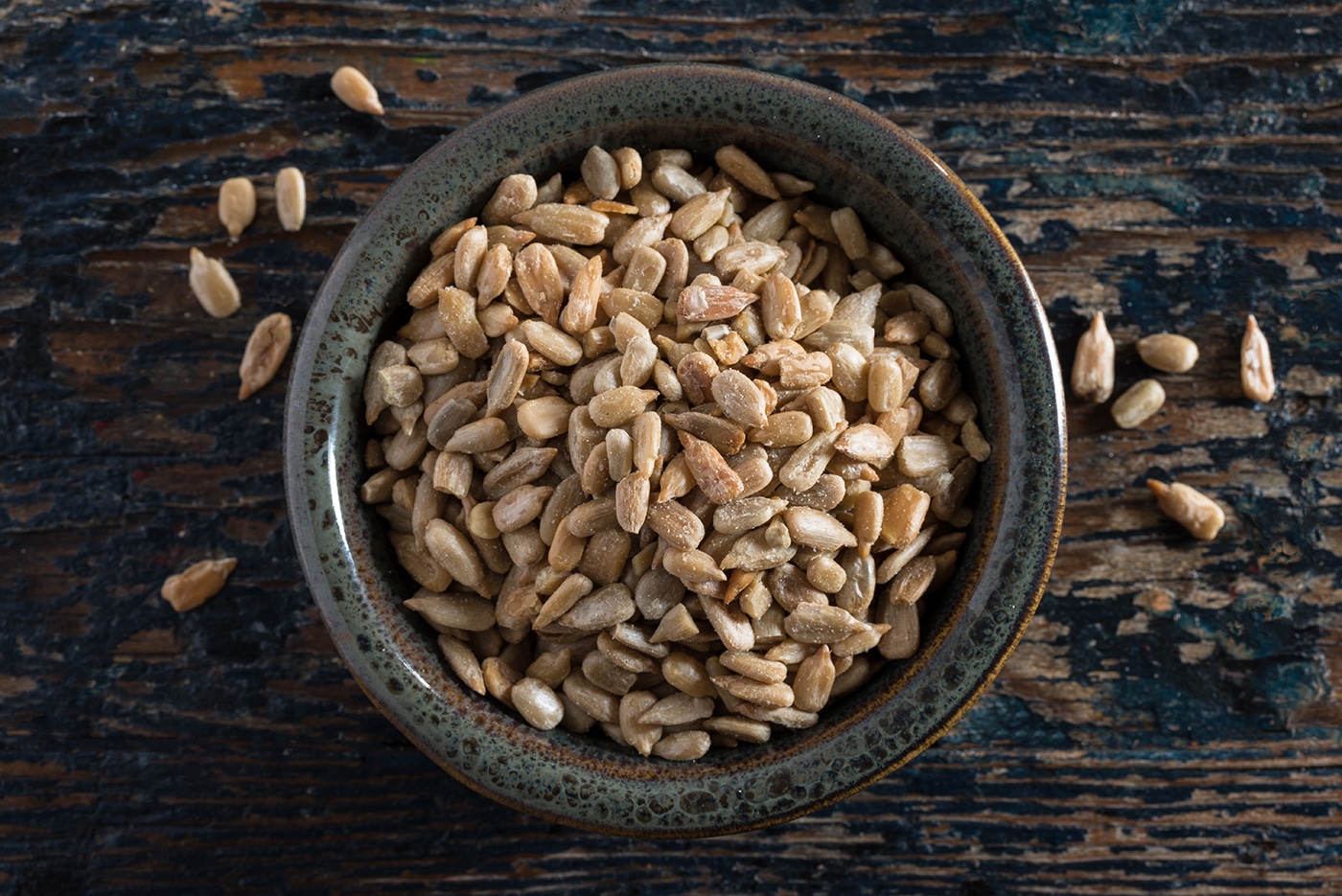
5 Surprising Reasons Why You Should Replace Cashews with Sunflower Seeds (Plus, the Ultimate Vegan Alfredo Sauce Recipe)
As plant-based athletes, we’re all on a journey together:
To find the best vegan creamy sauce to use on all sorts of dishes, including mac and cheese.
Okay, maybe that’s not the only journey we’re on, but that smooth, silky sauce is one we all long for, and a hard one to replicate.
Many of us have found an acceptable alternative through the use of cashews… soak those nuts for a while, blend them with your choice of spices, and you can have nearly whatever sauce you’re hoping for.
But, let’s face it — cashews are pricey. And churning up a pound of them for the simple pleasure of a comfort food can be a hard pill to swallow.
Then when you start to consider some of the other factors — including environmental and ethical considerations that we’ll discuss below — that pound of cashews may begin to weigh a little more heavily on your conscience.
That’s where sunflower seeds come to the rescue.
These little seeds, found in the bottom of any store-bought trail mix, are the yet-unsung hero of the nut-and-seed-sauce world.
Raw sunflower seeds can be an excellent alternative to raw cashews in vegan recipes. In this
Not only that, but we’ll include some practical steps on using raw sunflower seeds and a bonus recipe to get you started.
Ready to see who wins in the nut vs. seed battle?
Round 1: Environmental Impact
Cashews are grown in tropical countries, and they require transport to be sold in North America and in Europe, where the demand is growing. By 2021 cashews are predicted to take over 29% of the global nut market.
This demand comes at a steep cost because cashews are such a thirsty crop. Depending on irrigation techniques used, it takes between 180 and 1704 gallons of water to produce a pound of cashews!
Seeds generally require much less water than nuts, and sunflower seeds are no exception, requiring only about 46 gallons of water per pound of sunflower seeds. Plus, since sunflower seeds can be grown nearly anywhere, the impact from shipping them around the world is reduced. So, in terms of the environment, for food miles and water saved, sunflower seeds are the clear winner.
Round 2: Cost
When it comes down to it, cashews are expensive. Nuts.com offers raw cashews at $12.99 per pound, while sunflower seeds are $2.99 per pound. The prices at your local store may vary, but cashews tend to be between 4-5 times more expensive than sunflower seeds.
So that means, if you make cashew-based cheeses, sauces, dips, desserts, or
Round 3: Allergen Risk
Tree nut allergies, including to cashews, are some of the most common allergies, which is of course why schools often have a nut-free policy. As a matter of fact, children are more likely to have an anaphylactic reaction to cashews than to peanuts.
Allergies to seeds are much less common, and as a result, they’re usually allowed in schools.
Round 4: Nutrition
It’s no secret that nuts and seeds are packed with nutrition. Although each nut or seed has a unique nutritional profile, they can all be an important part of a healthy diet. Nuts and seeds are particularly rich in protein, healthy fats, and fat soluble vitamins.
Cashews are relatively high in carbohydrates, compared with most other nuts and seeds. One ounce of cashews contains 8.5 grams of carbs, 0.9 grams of fiber, and 4.7 grams of protein.
Conversely one ounce of sunflower seeds contains 5.7 grams of carbs, 2.3 grams of fiber, and 5.7 grams of protein.
So you see, sunflower seeds are richer in protein and fiber and lower in carbohydrates than cashews.
In general, sunflower seeds are at least as healthy as cashews, and may even be marginally healthier. It is important to note that these are both healthy choices, but you are not missing out on health by switching to sunflower seeds.
Round 5: Ethical Considerations
Cashews are produced in tropical countries; commonly in India and Vietnam. Cashews grow in a shell, and the shell is removed before shipping. The shells are lined with a toxic substance that is similar to poison ivy. In India, it is mostly women who do this work, and as the women are paid by the volume of cashews that they shell, they want to work quickly and efficiently. This means not wearing gloves, the result of which is that they often burn their hands on the acids in the cashews. In Vietnam, the world’s largest exporter of cashews, the situation is even worse.
Some of the country’s cashew processing occurs in “drug treatment centers.” People are forced into labor as part of their “treatment.” No therapy is provided. At any one
Eliminating or reducing your consumption of cashews will ensure you don’t support this type of production. However, if you do want to keep using cashews in your diet, fair trade cashews are available.
Will Sunflower Seeds Replace Cashews?
Taking into consideration everything mentioned above — the cost to your bank account and the environment, as well as the ethical costs associated with cashews (not to mention safety concerns for those with allergies) — it’s hard to root against the sunflower seed.
It’s almost a bonus that you don’t have to worry about sacrificing nutritional value when you make the switch.
But I get it — sunflower seeds aren’t cashews. How could those little seeds possibly be an acceptable alternative?
The best way to find out is to give it a try…
How to Use Sunflower Seeds for Creamy Plant-Based Sauces
It’s quite simple: Raw sunflower seeds can be substituted for cashews in a 1:1 replacement in vegan recipes with success.
Step 1: Soak them.
You will need to soak your sunflower seeds similarly to your cashews. This works very well in savory recipes like sauces and dips. It does also work well in desserts like vegan cheesecake; however, you may want to soak your sunflower seeds longer and rinse them very well. A long soak and a good rinse is helpful in making the flavor of your sunflower seeds very mild.
Methods of soaking:
- Overnight in the fridge
- A hot soak for 15 mins in freshly boiled water
Step 2. Blend them.
Using a high-powered blender will help to make your sauces very smooth and eliminate any gritty texture.
Step 3. Use them.
They can be used in just about any recipe that calls for a creamy sauce, including
If you’d like some inspiration, check out my new sunflower seed cookbook here.
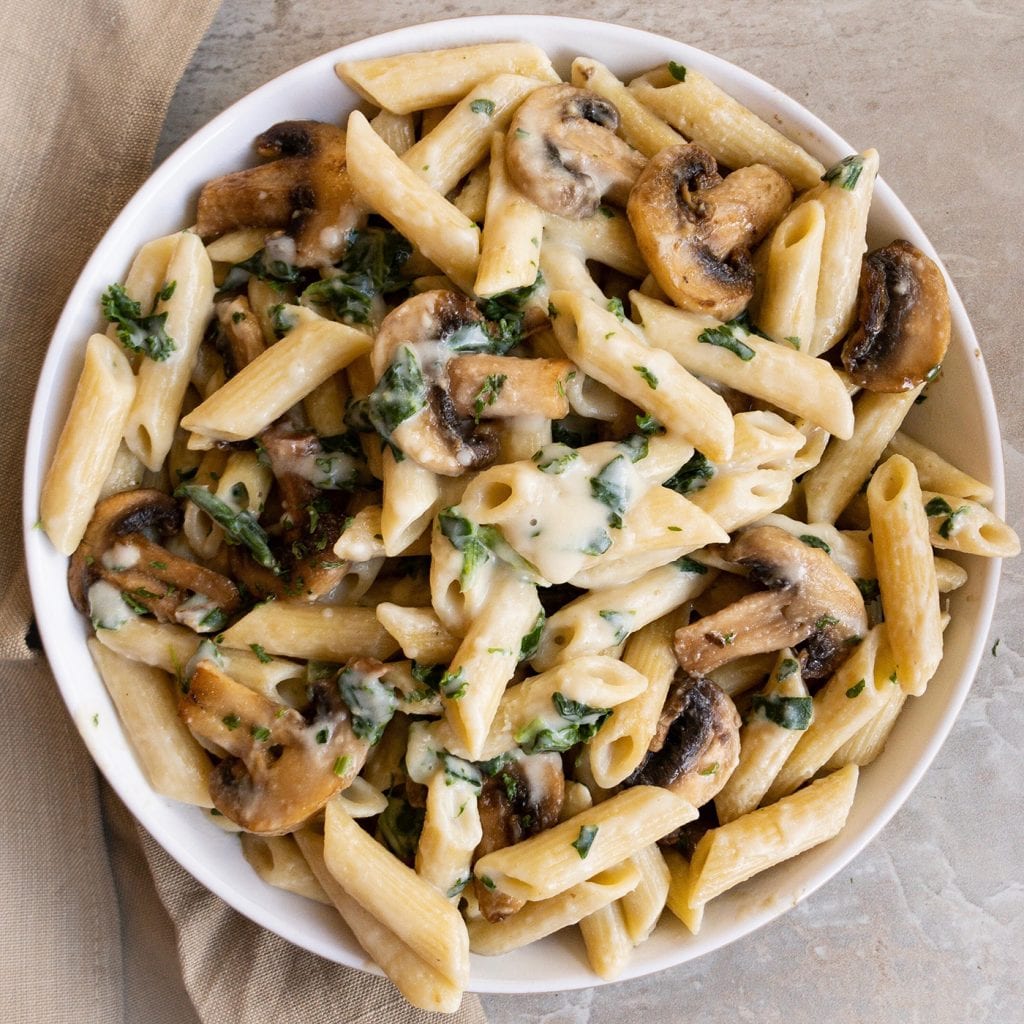
Sunflower Seed Fettuccine Alfredo with Mushrooms Recipe
Need some inspiration? Check out one of my favorite new recipes featuring a sunflower seed alfredo sauce your entire family is going to love.
Ingredients:
- Cooked pasta for 4 people
- 2.5 cups veggie stock
- 1/4 cup raw sunflower seeds
- 1 cup chopped mushrooms
- 1 small potato, peeled and chopped
- 1/2 rough chopped onion
- 2 cloves garlic rough chopped
- 1/2 tsp garlic powder
- 2 tbsp olive oil separated
- Salt and pepper to taste
Instructions:
- Saute the chopped onion and garlic in 1 tbsp of the oil until softened
- Add in the veggie stock, sunflower seeds, potato
and garlic powder - Simmer the ingredients for the sauce until the potatoes are tender. Then blitz in the blender for 2 mins until well-blended.
- Add salt and pepper to taste. The sauce will thicken slightly as it cools.
- Saute the mushrooms in 1 tbsp olive oil. Add a touch of salt and pepper if desired.
- Pour mushrooms and sauce over pasta.
The Greatest Good
Sunflower seeds may be an easy swap to help you find a plant-based sauce that works for you, but they’re much more than that.
They’re a cheaper, more ethical, more environmentally friendly alternative that doesn’t sacrifice nutrition.
Who knew such a little seed could accomplish such a big thing?
About the Author: Pamela Fergusson is a vegan Registered Dietitian with a



